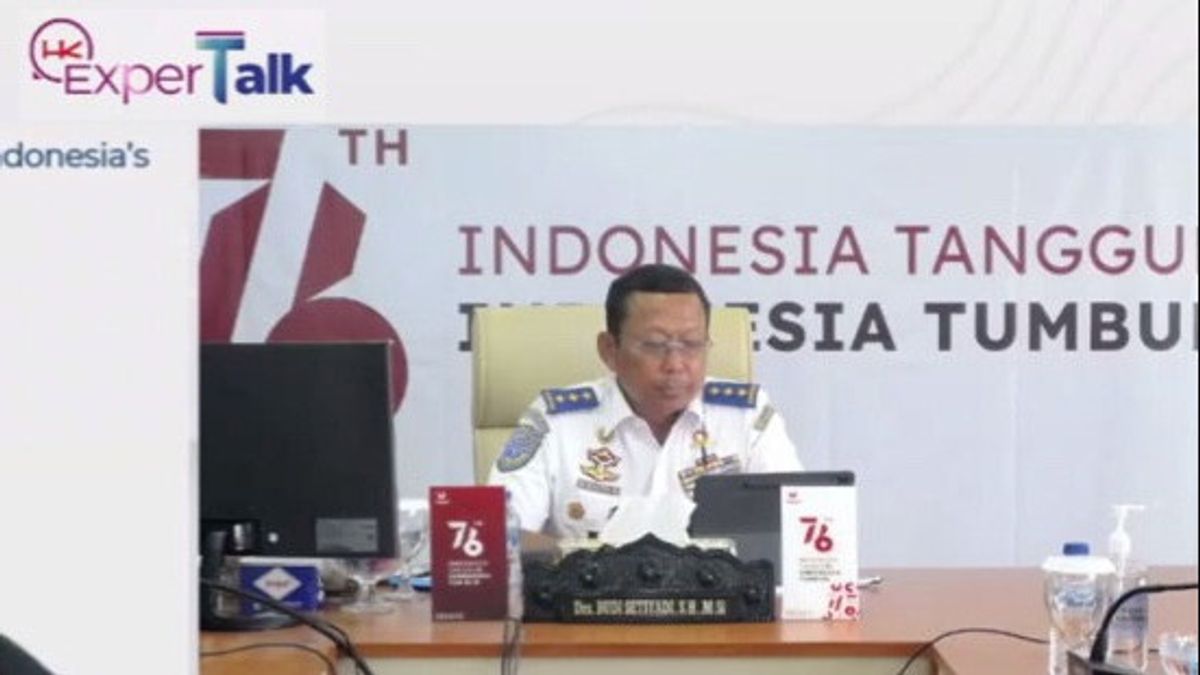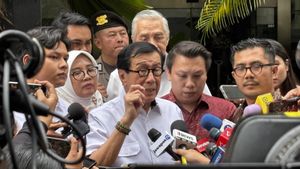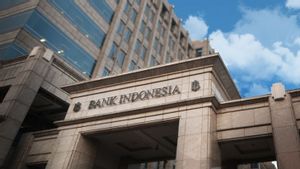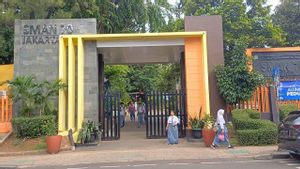JAKARTA - PT Hutama Karya (Persero), as one of the State-Owned Enterprises (BUMN) engaged in construction services, developers and providers of toll road services, continues to innovate while providing education to the public, in the development of the world of infrastructure and energy, in order to accelerate the vision Advanced Indonesia.
One of the ways to do this is by holding a HK Expert Talk, which is a global scale forum that accommodates companies, institutions, practitioners, observers, students and students, to share knowledge. Through the HK Academy and the HK Center for Knowledge, Research and Innovation (HK Connection), both of which are educational, research and technology institutions from Hutama Karya, the HK Expert Talk was held in the form of a series of educational and inspirational webinars, covering the world of infrastructure and the latest energy.
Not yet, the HK Expert Talk was held for the 4th time in collaboration with the National Energy Council, to be precise on August 19, 2021. The webinar which was attended by more than 1,000 participants, both from within and outside the country, including students to professionals in the automotive industry, this time discussed the hot topic of accelerating the program for battery-based electric motor vehicles, as a substitute for fossil fuel motor vehicles.
This is indeed the center of the world's attention, regarding the commitment to reduce greenhouse gas emissions and the realization of clean energy. Accompanied by the spirit of independence this August under the title "Indonesia is Resilient, Indonesia Grows", the webinar discusses efforts to promote renewable alternative energy, one of which is batteries, as a form of energy efficiency, energy security, and energy conservation in the transportation sector.
The 4th HK Expert Talk presented speaker Budi Setiyadi as the Director General of Land Transportation of the Ministry of Transportation of the Republic of Indonesia, who conveyed the government's plan to realize the acceleration of this program. Based on PP No. 55 of 2019, the government fully supports the mastery of industrial technology and design with the hope that Indonesia will become a production and export base for electric motorized vehicles.
This program is also supported by the Ministry of Transportation, with the Minister of Transportation Regulation No. 65 of 2020, concerning the Conversion of Motorcycles with Fuel Motor Propulsion, into battery-based electric motorcycles. This policy is expected not only to be implemented with decentralization in the Central Government, but also to the regions.
The implementation target will start at the operational level of central and local government, urban mass transportation, and the National Tourism Strategic Area (KSPN), with a conversion target of 90 percent by 2030.
Meanwhile, in order to increase public interest in electric-based motorized vehicles, Yohannes Nangoi, General Chairperson of the Indonesian Automotive Industries Association, explained that there are three things that become challenges for the automotive industry in Indonesia, namely short charging time, long cruising range. , and an affordable price, considering that the largest purchasing power of the Indonesian people is still in the range of IDR 250-300 million.
In addition to these three things, this program is expected to be in line with the provision of supporting facilities, especially the construction of fast charging infrastructure at several points in big cities and gradually also to the regions, as well as certified workshops specifically for electric-based motor vehicles.
As also conveyed by Ir Bob Saril M.Eng.Sc, IPU, as Director of Commerce and Customer Management of PT PLN (Persero) that the readiness of this infrastructure can be seen from the distribution of Public Electric Vehicle Charging Stations (SPKLU) held by PLN, as well as collaborating with the private sector with a total of 140 units throughout Indonesia, and will increase to 168 units in 2021.
The large reserves and supply of electricity with power plants that use renewable energy brings optimism in the future that the need for electric power as a battery charger for motorized vehicles in Indonesia will be fulfilled.
Associated with global warming which is the concern of the entire world community, air pollution is one of the causes. In the Asian regional market, the share of motorcycles is the largest contributor to pollution in the transportation sector. This is the challenge in overcoming global warming by developing the electric vehicle industry.
Energy transition and net zero emission are not only targets for Indonesia in 2060, but also for the whole world, as described by Djoko Siswanto, as Secretary General of the National Energy Council.
The development of battery-based electric motor vehicles which will later be massive has also been considered by PLN as the provider of electric power in Indonesia. PLN will apply special, competitive rates, and provide subsidies for a certain period of time to support this acceleration program. Infrastructure planning and construction of power plants will continue to be carried out in the next 10-15 years.
This is also in line with the explanation of Novias Nurendra, as Director of Operations I Hutama Karya, who explained about the creation of energy infrastructure to support the transition of electric vehicles. He explained that Indonesia still needs the construction of power plants of 11 GW/year so that the target of installed power plants in 2050 of 443 GW based on the National Energy Policy and the National Energy General Plan by the National Energy Council can be achieved.
The power plant is also used as a supply of electric vehicles and supports Indonesia's per capita income target of US$25,000 by 2045. In meeting the fulfillment of energy/power supply, a generator that can provide competitive electricity prices is needed so that in the future there is no need for subsidies so that it is burdensome. PLN finance.
"One form of support for the program to accelerate the transition of electric vehicles is the construction of the Trans Sumatra Toll Road (JTTS). JTTS can become a toll road that offers solar PV potential, whose utilization can greatly support the main power source for SPKLU, as a support for electric vehicles based on electricity. batteries," said Novias Nurendra.
In addition, Novias Nurendra also explained that PT Hutama Karya (Persero) as a State-Owned Enterprise (BUMN) in the field of Infrastructure Development and Toll Road Management which is currently building the Trans Sumatra Toll Road (JTTS), is cooperating with PLN in preparing the SPKLU. in several JTTS rest area locations, where the SPKLU electricity source is planned to be sourced from PLTS built around JTTS.
The English, Chinese, Japanese, Arabic, and French versions are automatically generated by the AI. So there may still be inaccuracies in translating, please always see Indonesian as our main language. (system supported by DigitalSiber.id)













